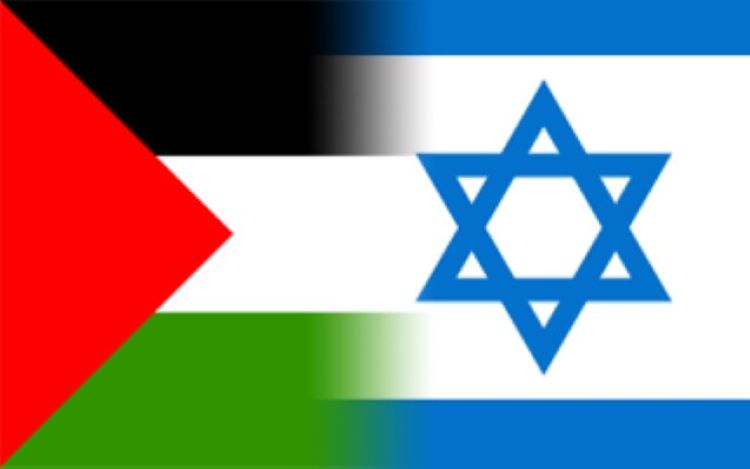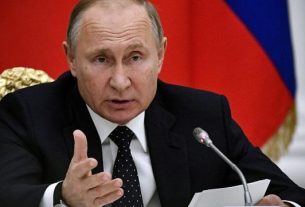Negotiations to secure a cease-fire in the Gaza Strip and facilitating a prisoner exchange between Israel and Hamas resumed Thursday in Qatar, though the talks face significant challenges due to four key conditions from Israeli Prime Minister Benjamin Netanyahu.
The conditions, which could derail the talks, are seen as vital for Israel but are contested by Hamas and other Palestinian factions.
The talks, mediated by Qatar, Egypt and the US, bring together high-level representatives, including the heads of US and Egyptian intelligence, and Israeli officials led by Mossad Chief David Barnea.
Hamas said on Wednesday, however, that it will join the cease-fire and hostage swap talks if it gets a clear commitment from Israel on the implementation of US President Joe Biden-backed proposal.
Biden said in May that Israel presented a three-phase deal that would end hostilities in Gaza and secure the release of hostages held in the coastal enclave. The plan includes a cease-fire, a hostage-prisoner exchange and the reconstruction of Gaza.
No set deadline
The mediators have not set a deadline for the new round of negotiations, although leaders of broker countries emphasize the need for an agreement.
It remains unclear whether the Palestinian resistance group would participate, as it has indicated it prefers to implement a previous agreement rather than engage in additional talks that might provide cover for “further Israeli massacres.”
The participation of CIA Director William Burns, Egyptian Intelligence Chief Abbas Kamel and Qatari Prime Minister Mohammed bin Abdulrahman Al Thani adds momentum to the talks in Doha.
Israel announced that its delegation would be led by Barnea, accompanied by Shin Bet Director Ronen Bar, IDF’s prisoner and missing persons file head Nitzan Alon and the prime minister’s advisor Ofer Belik.
The identity of Hamas’ representatives and the negotiation mechanisms remain unclear, but the group’s communication typically occurs through Egyptian and Qatari intermediaries.
Preventing a full-scale war
Israel’s Channel 12 said the talks are expected to last two days, with teams splitting into working groups aimed at closing the gaps to reach an agreement.
It reported that some discussions would involve only the heads of delegations: Mossad’s chief, Qatari prime minister and Egyptian and US intelligence chiefs.
A key question is the extent of authority granted to Israel’s negotiating team by Netanyahu, and whether he has imposed new demands.
Critics, including opposition figures, security officials and families of Israeli captives, accuse Netanyahu of stalling the deal for fear of a collapse of his government, as far-right ministers threaten to withdraw if a deal is reached to end the onslaught.
While details remain scarce, Channel 12 reported that “the Israeli delegation’s authority has been expanded but remains limited, and any agreement would not necessarily depend on a resolution in Gaza but on preventing a full-scale war.”
Israel has been bracing for potential retaliation from Iran and Hezbollah for the past two weeks following the assassination of Hamas political leader Ismail Haniyeh in Tehran at the end of July, and Hezbollah commander Fuad Shukur in Beirut just hours earlier.
While Israel has claimed responsibility for Shukur’s assassination, it has remained silent on accusations by Iran and Hamas regarding Haniyeh’s death in an airstrike during his visit to Tehran, although Netanyahu has hinted at Israel’s involvement.
Four key conditions
Hamas is insisting on ending the war in Gaza, the withdrawal of Israeli forces and the return of displaced Palestinians to their homes as part of any prisoner exchange deal.
Based on recent statements from Netanyahu’s office, however, four main issues need to be resolved to finalize an agreement.
Netanyahu’s office emphasized the need Tuesday for a mechanism to prevent armed Palestinians from crossing the Nitsarim Crossing from central Gaza to the north.
Israeli negotiators have told Israeli media in recent weeks that the condition to establish a mechanism for inspecting Palestinians complicates reaching a deal.
Netanyahu’s second condition is for Israel to maintain control over the Philadelphi Corridor (Salah al-Din axis) and the Rafah border crossing between Gaza and Egypt, which has been under Israeli control since May.
The third concerns knowing the number of Israeli prisoners still alive in Gaza, who would be exchanged for Palestinian prisoners held in Israeli jails.
Israel holds at least 9,500 Palestinians in its prisons, while Hamas claims there are around 115 Israeli prisoners in Gaza, with more than 70 reportedly killed in Israeli airstrikes.
The proposed agreement would involve the release of a limited number of “alive or dead” Israelis, but Netanyahu insists on the release of most living captives and wants Israel to receive a list of names in advance.
The fourth condition is for Israel to retain the right to reject the release of specific Palestinian prisoners that Hamas wants freed and to deport released prisoners outside of Palestine — a condition Hamas rejects.
Flouting a UN Security Council resolution demanding an immediate cease-fire, Israel has faced international condemnation amid its continued brutal offensive on Gaza since an Oct. 7 attack by Hamas.
The Israeli onslaught has since killed more than 40,000 victims, mostly women and children, and injured over 92,400, according to local health authorities.
More than 10 months into the Israeli onslaught, vast tracts of Gaza lie in ruins amid a crippling blockade of food, clean water and medicine.
Israel is accused of genocide at the International Court of Justice (ICJ), which ordered it to immediately halt its military operation in the southern city of Rafah, where more than a million Palestinians had sought refuge from the war before it was invaded on May 6.__The Nation





